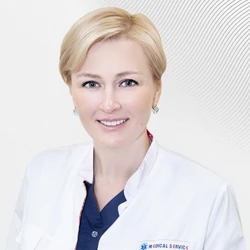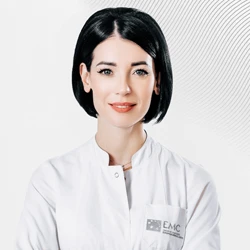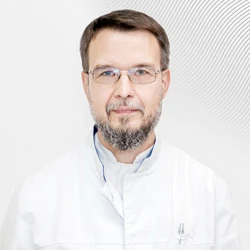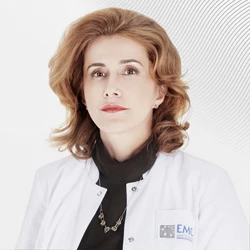"I want a baby, but I can't get pregnant" is a phrase often uttered by patients in the gynecologist's office.
The probability of pregnancy of a healthy woman from a healthy man is 25% in one menstrual cycle. Therefore, if pregnancy does not occur in a few months, this is not a reason to worry. You should contact a reproductologist if you cannot get pregnant during a year of active sexual life without contraception before the age of 35, or for 6 months after the age of 35.
To get a comprehensive answer why it is not possible to get pregnant, you need to go through a series of studies. Since in 40% of cases the impossibility of conception is related to men's health, both spouses must undergo an examination.
The main causes of infertility
The main causes of female infertility are:
-
Tubal or tubo-peritoneal factor is an obstruction of the fallopian tubes (partial or complete).
-
Endocrine disorders. Endocrine system dysfunction accounts for almost 40% of infertility cases. It can manifest itself in different ways, but the unifying factor is the lack of ovulation caused by a wide range of diseases - resistant or depleted ovarian syndrome, hyperprolactinemia, PCOS, etc.
-
Endometriosis. Foci of endometriosis can be located on the ovary, on the uterus, and on the peritoneum. At the same time, the quality of oocytes often suffers.
-
Pathology of the uterus (congenital and acquired) – developmental abnormalities, adhesions, neoplasms, endometritis, etc.
The main causes of male infertility include:
-
Violation of spermatogenesis.
-
Violation of patency (obstruction) of the vas deferens.
-
Hormonal dysfunction.
-
Congenital diseases (hypospadias, cryptorchidism).
-
Impaired ejaculation (premature, prolonged, or retrograde ejaculation).
-
Varicocele.
-
Autoimmune pathology.
There are also combined forms of infertility, and in some situations we are talking about infertility of unknown origin.
Lifestyle, harmful habits (smoking, alcohol, drugs), steroid use, toxic production, prolonged use of certain medications, etc. have a certain effect on fertility, both male and female.
How to speed up the conception process
Probably, if pregnancy does not occur within a couple of months, the problem is not in physiology, but in lifestyle and external factors that are easy to eliminate. To increase the chances of conception, it is necessary:
-
Have a regular sex life (have sex at least 2-3 times a week)
-
Monitor ovulation and determine the days favorable for conception by measuring basal temperature or a home hormone test.
-
Change your eating habits – switch to a healthy, balanced and vitamin-rich diet.
-
To stabilize the immune system.
-
Give up bad habits.
-
Maintain psycho-emotional balance.
If, after eliminating all negative factors, the problem has not been resolved and it is still not possible to get pregnant, you should consult a gynecologist or a reproductologist and undergo a comprehensive examination.
Diagnosis of problems with conception
To identify the reasons for the absence of pregnancy, the EMC clinic in Moscow conducts a comprehensive diagnostic examination of both partners, including:
-
Consultations with an andrologist, a reproductologist, medical history collection and, if necessary, consultations with specialized specialists – an immunologist, an endocrinologist and other doctors.
-
Blood tests (general, biochemical, hormonal status, infection group, genetic factors, immunological tests) – in order to get the most reliable results, women need to take blood for hormones on certain days of the monthly cycle.
-
Spermogram and functional tests of spermatozoa. It is necessary to abstain for 3-5 days, excluding baths and strong alcohol for a week.
-
Examination of smears from the cervical canal (female) and urethra (male).
-
Instrumental studies for women:
-
Pelvic ultrasound;
-
Hysterosalpingography (HSG) or echosalpingoscopy to study the patency of the fallopian tubes;
-
Ultrasound of the breast and thyroid gland, mammography for patients over 35 years of age.
-
Diagnostic laparoscopy.
-
- Instrumental studies for men:
-
Ultrasound of the genitals;
-
Diagnostic testicular biopsy with cytological and histological analysis of biomaterial (for azoospermia)
-
The examination scheme in each clinical situation is determined by the doctor individually.
Infertility treatment at the EMC clinic
Today, there are several basic treatments for female and male infertility:
-
Medication is prescribed if the failure of an attempt to get pregnant lies in endocrine disorders or the infectious and inflammatory process of the reproductive system.
-
Surgical intervention. In case of violation of the patency of the fallopian tubes or vas deferens, an operation is performed to remove obstacles to the free movement of the oocyte and sperm.
IVF is the most effective way to get pregnant, even with complete obstruction of the fallopian tubes or their absence, poor quality of the partner's sperm that cannot be medically corrected. Child planning, even with pronounced female or male infertility factors, often ends with pregnancy when using modern ART techniques.
Advantages of applying to the EMC Reproductive and Prenatal Medicine Clinic
-
A team of the strongest reproductive specialists and obstetricians and gynecologists with experience in the best clinics in the world.
-
The use of all modern ART techniques: IVF, IVF with a donor egg or embryo, ICSI, IMSI, PIXIE, PGD, artificial insemination, assisted hatching, etc.
-
Own embryological laboratory.
-
Cryobank for storage of vitrified oocytes, sperm, and embryos, including donor ones.
-
The surrogacy program.








.webp)


.webp)

.webp)

.webp)
